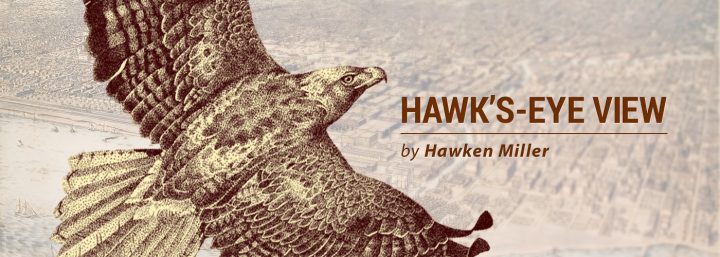A Good Sense of Humor Makes My Duchenne Diagnosis Easier
Written by |

I like to think I’m pretty funny, at least that is until I work up the courage to say something in a conversation. A lot of my humor has to do with my disability. Making a few wheelchair jokes here and there makes people uncomfortable, but it helps me stay positive, make new friends, and overcome challenges I face.
In my 23 years, I’ve had plenty of negative experiences. Sometimes I’m in a foul mood for no reason. I shake my fist at the world for making life hard. No matter how much I would like to get upset, angry, and sad, it never seems to change my feelings.
But when I crack even the faintest smile, things change. I’ll think of a funny memory, watch a romantic comedy, or laugh as one of my friends makes a fool of themselves. It flips an emotional switch in my head.
Plenty of studies point to a link between smiling, whether it’s voluntary or not, and the release of dopamine, endorphins, and serotonin, which creates a cycle of happiness. Developing a sense of humor allows you to see the comedy of the world and use it to make yourself feel better.
One of the most important side effects of being able to laugh at yourself with other people is the ability to make friends. Cognitive neuroscientist Sophie Scott calls it a “behaviorally contagious effect” that can help “make and maintain social bonds.”
My life experience tends to support that theory. If I’m laughing with someone else, I feel an instant emotional bond with them. Plus, according to Scott’s TED Talk (which I recommend you watch because it’s funny), you’re “30 times more likely to laugh if you are with somebody else than if you’re on your own.” It’s simple. The more people, the more likely you are to laugh, find behavioral common ground, and make a new friend.
Mixing humor with my disability has made connecting with people I meet for the first time easier. I’ve encountered plenty of people who are differently-abled than I am and not known what to do. When they make the first joke and laugh, it’s an invitation for me to interact. The same applies to the other side. If I can establish our common connection, then the hardest part of making new friends is over.
I know the road ahead in life isn’t easy. Relationships will dissolve, I’ll lose the ability to do some of the things I love, and my career will have setbacks. Obviously, there is a time for sadness, anger even, but the thing that will always put a smile on my face is making myself or someone I love laugh.
***
Note: Muscular Dystrophy News is strictly a news and information website about the disease. It does not provide medical advice, diagnosis or treatment. This content is not intended to be a substitute for professional medical advice, diagnosis, or treatment. Always seek the advice of your physician or another qualified health provider with any questions you may have regarding a medical condition. Never disregard professional medical advice or delay in seeking it because of something you have read on this website. The opinions expressed in this column are not those of Muscular Dystrophy News or its parent company, Bionews Services, and are intended to spark discussion about issues pertaining to muscular dystrophy.




